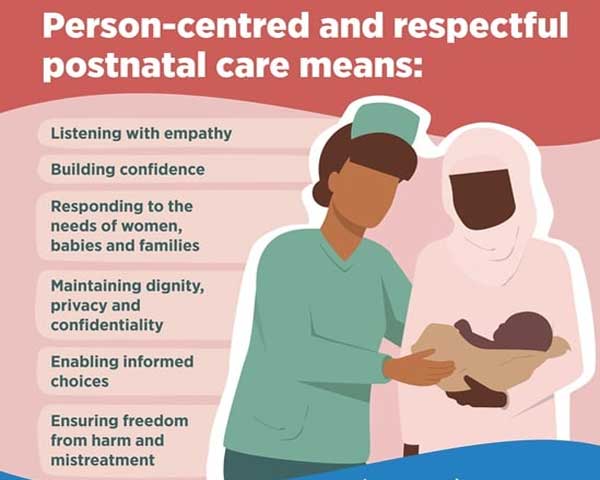Post Delivery Health Care Tips
Home / Post Delivery Health Care Tips
Home / Post Delivery Health Care Tips

Here are some essential post-delivery health care tips for both you and your newborn:
Episiotomy or tearing: Healing can take 4-6 weeks. Sitz baths, pain medication, and gentle exercise like Kegels can help with discomfort.
Breastfeeding: If you choose to breastfeed, expect engorgement, milk production, and potential tenderness. Lactation consultants and support groups can offer guidance.
Abdominal changes: Your uterus will shrink back to its pre-pregnancy size, and you might experience diastasis recti (muscle separation). Kegel exercises and supportive garments can help.
C-section recovery: Expect longer healing with pain around the incision. Rest, pain medication, and gentle movement are key.
Baby blues: Mood swings and tearfulness are common in the first few days or weeks. Support, rest, and talking it out can help.
Postpartum depression: If mood changes persist and interfere with daily life, seek professional help immediately.
Bonding with your baby: Take time for skin-to-skin contact, cuddles, and quiet moments. Every woman's pace is different.
Self-care: Prioritize rest, healthy meals, hydration, and gentle exercise. Don't hesitate to ask for help with chores or childcare.
Rest and sleep: This is crucial for both physical and emotional recovery. Delegate tasks and allow yourself to sleep as much as possible.
Nutrition and hydration: Eat a balanced diet rich in fruits, vegetables, and whole grains. Stay hydrated for milk production or general health.
Exercise: Gentle walks and light activity can improve mood, energy, and recovery. Start slowly and listen to your body.
Support system: Lean on your partner, family, and friends for help with chores, emotional support, and advice.
Postpartum checkups: Regular doctor visits are important for both you and your baby. They monitor health, answer questions, and offer guidance.